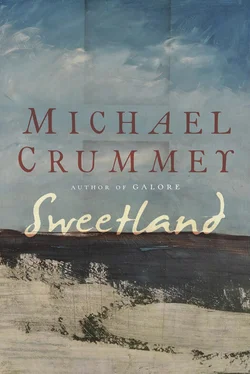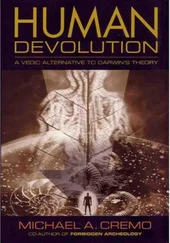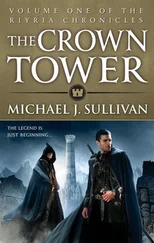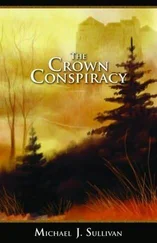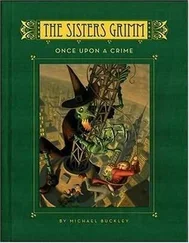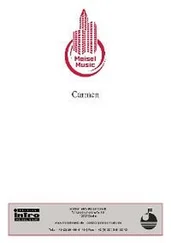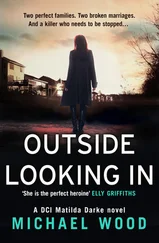It was another half-hour of rowing toward that voice before the sound of waves on the breakwater loomed at his back. Sweetland turned to follow the line of stones to the harbour’s mouth. Surprised to see they were coming toward Chance Cove from the west, as if they had somehow managed to circle the island. It was still dark, but the fog had lifted enough that he could make out the white of the church on the point as he pulled into the cove. And not a sound to be heard now he was in sight of the place. He looked over his shoulder where the dog was two paws up on the gunwale, the little tail wagging furiously.
He guided the boat toward the beach and the dog was over the side as soon as the keel touched in the shallows, away up the path toward the mash. Sweetland called after him, though he knew it was a useless gesture. He hauled the dory halfways out of the water, which was as much energy as he could muster. He tied the painter to the chain and walked up the path to his house in the black.
It was near noon before Sweetland woke on the daybed in the kitchen. He lit a fire and put on the kettle and a pot of water to shave. He opened the door and called out to the dog but there was no sign of it. The air suddenly seasonal, cold and cutting.
After he’d washed and eaten, he went down to the beach with three longers and a sheet of canvas under his arm. The tide had risen and the dory was floating free, still tied to the chain-rock. Sweetland hauled it in and dragged it up off the landwash. The fish were sitting in the three inches of bilge water at the bottom of the boat, too high now to consider eating. He tipped the dory up on its gunwale to shake them onto the beach, took out the drain plug and sluiced the mess with seawater. He laid the three logs beside the chain-rock and dragged the dory up beside them, turning it face down onto the longers. He tied the canvas over the boat and he took the oars back up the path and tucked them away in the rafters of his shed.
He called to the dog when he came out the door, whistled up the hill toward the mash. Turned back to the cove, looking out as far as the white clapboard church on the point. The boarded windows. The squat finger of the steeple where the music used to play.
Sweetland and the Reverend were almost outside after their final walk-through of the church when the Reverend put a hand to his arm.
One more spot, he’d said.
There was a stairway off the vestibule that led to a trap door and they climbed through that into a darkened room the size of a bathroom. They flashed their lights around the tiny space. The ceiling twenty feet above them.
I should take these, the Reverend said, and he collected an armful of records that were stacked on the floor near the PA apparatus.
You got plans for those? Sweetland asked him.
Just don’t like the thought of leaving them behind, I guess.
The Reverend went ahead of him through the trap door and Sweetland made a last sweep with his light to make sure nothing had been overlooked. When they were outside, he closed and locked the doors and handed the keys to the Reverend. Then he set the two-by-fours across the door frame and screwed them into place with the cordless.
Sweetland watched the church a few minutes, talked himself into walking out to the point. He went around to the side door that led into the minister’s office, to see that it was still locked and nailed shut. He circled the building, checking the plywood on all the windows. He came around to the main doors finally, looking close at the two-by-fours across the width. Nothing had been touched or tampered with that he could see. Sweetland glanced up at that empty steeple and then he turned away toward the cove. The water flat calm. He looked up the hillside, scanning across the houses. They all seemed to lean down toward him with a hand at their ears, listening intently. He raised his eyes past them, toward the mash, and called out for the dog.
On the way up the hill he stopped into Duke’s shop, took a seat on the cold red leather of the barber’s chair. Trying to calm his thoughts with the chair’s lazy twirl, the room’s lingering undertone of aftershave and conversation. He imagined telling his story to Duke as he sat there, imagined the man’s skepticism about the details. You’re dreaming, he’d have said. You been drinking bad brew. You needs to give your head a goddamn good shake.
“That’s what I needs, all right,” Sweetland said, as if Duke was sitting across the room. He took a breath as he pushed the chair in its slow orbit about the room. “A goddamn good shake.”
He glanced down at the chessboard as he swung by and brought both feet to the floor to brake his movement. Raised himself from the seat.
There was a game in progress on the board. Half a dozen pieces, black and white, set off to the side. The black king in check.
Sweetland stayed in his kitchen the rest of the afternoon, drinking homebrew and playing solitaire. He left the radio on for the comforting babble of the outside world washing up on the shore of his own. Between hands he walked aimlessly to the living room and back again. He lifted the phone and listened awhile to the nothing in the receiver before he set it carefully into its cradle. He went out to the hallway periodically to stand in front of Uncle Clar’s portrait, the man’s eyes staring endlessly off to one side, like he was listening to someone in the wings. He took the frame off the wall finally, carried it into the kitchen. He looked around the room a moment, set it down on the daybed. He took his seat at the table and raised his glass to the young old man who still refused to meet his eyes, who was still listening to a voice just offstage.
Sweetland dealt himself another hand. He turned the cards slowly, scanning back and forth along the line, talking over the sound of the radio to his grandfather. Telling him about Loveless’s boat and fishing with Loveless’s dog who had been scavenging off his rabbit slips up on the mash. How he’d come to call him Mr. Fox, or Mr. Fawkes, as you like. About being lost in the fog that crept over them on the water, the odd absence of the foghorn on Burnt Head, and the voice that led them in past the breakwater.
“Queerest Jesus thing,” he said. “Ruined a nice load of fish on top of it all,” he said, without raising his eyes from the cards. “Had to dump the works of them on the beach today.” He tapped an index finger on the tabletop, placed the three of clubs on the four of hearts, the ten of clubs on the jack of diamonds. “There was one,” he said, “biggest fish I seen in years. Size of a goat, he was. Had to throw him aft by himself. Could have lived on that one for weeks.”
Sweetland tapped his finger again, glanced out the window. He couldn’t for the life of him remember seeing that fish when he flipped the dory and shook the load onto the beach. He turned back to the cards, but he’d stopped seeing them. Trying to picture the enormous cod among the slurry of water and blood and fish meat.
He said, “It’s just a fucken old fish, Uncle Clar.”
It was nearing dusk, the sun already touching the water somewhere out beyond the Mackerel Cliffs. He didn’t want to go down there in the dark and he wouldn’t sleep without knowing. He went to the porch and pulled on his coat. Leaned back into the kitchen and said, “Keep the fire in, would you, Clar?”
He whistled for the dog on his way down to the water. Half drunk and unsteady on his feet. The windows of the houses he passed darkening with the day’s passing, a wind moaning mournful through the dead electrical wires strung from eave to eave overhead.
He stumbled across the loose stone of the beach toward the pile of fish. A congregation of gulls still praying over the offering there and Sweetland waved his arms as he approached, shouting to clear them away. They hopped sullenly to one side, just out of arm’s reach. Sweetland stood over the mess they’d made, eyes pecked out, bellies razored open and the guts pulled into the air. But there was no sign of the goat-sized fish.
Читать дальше
